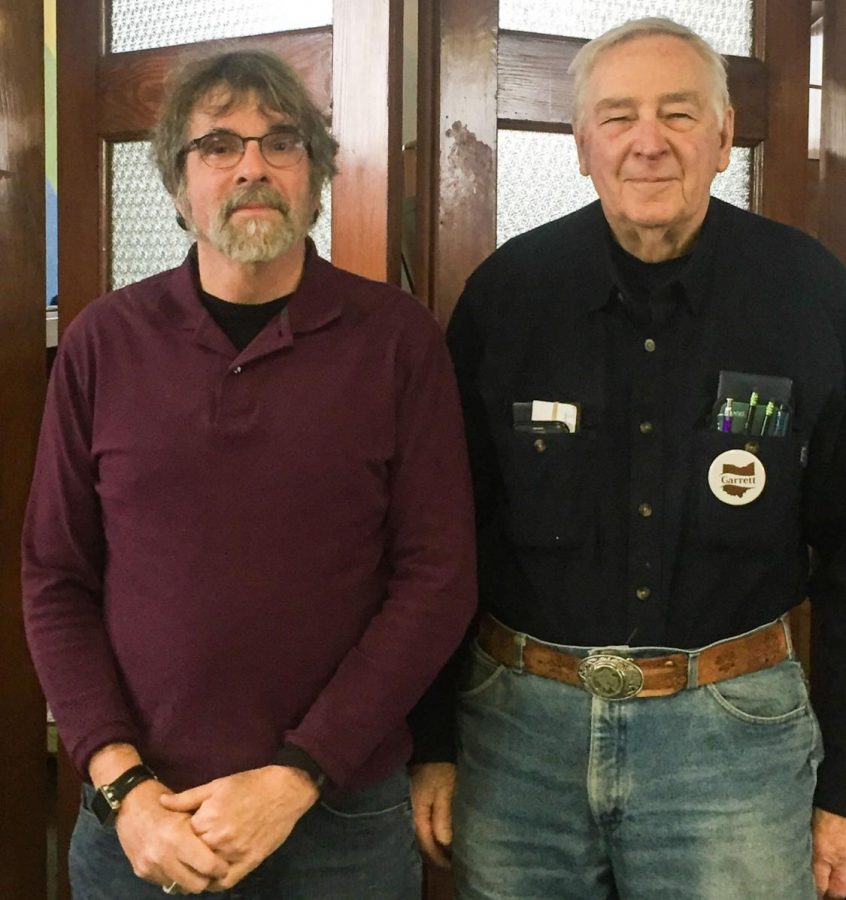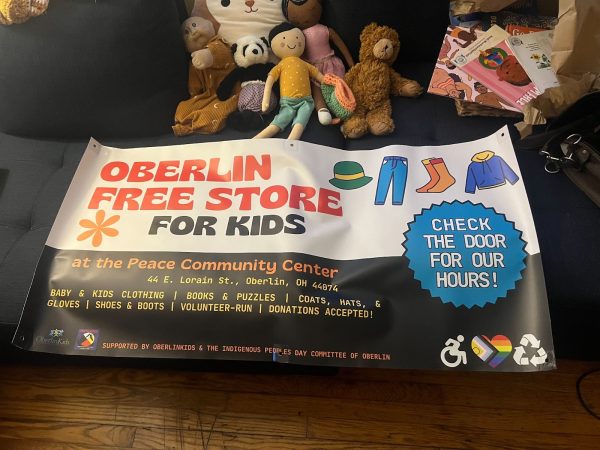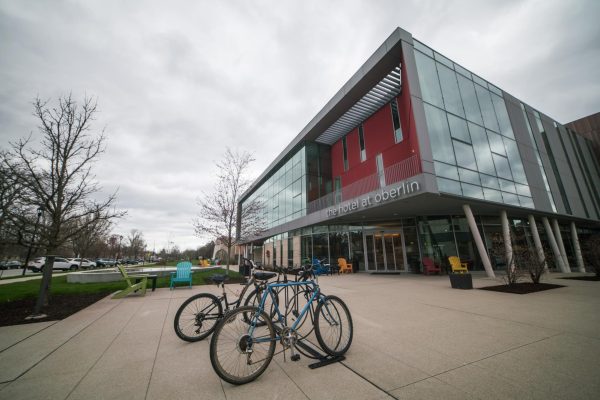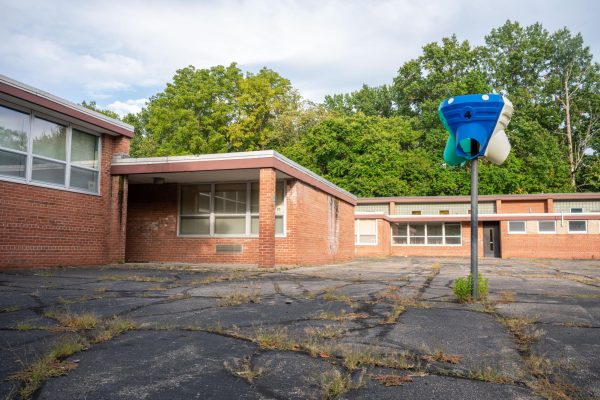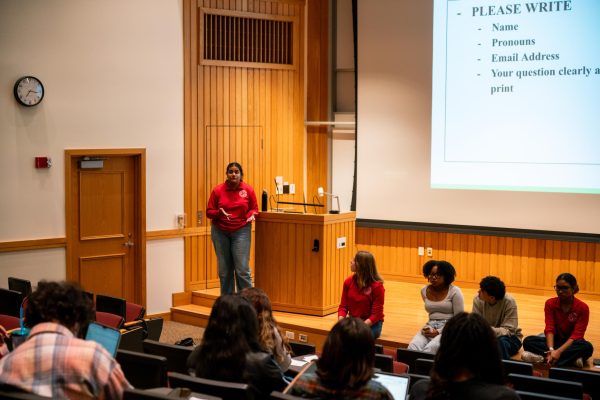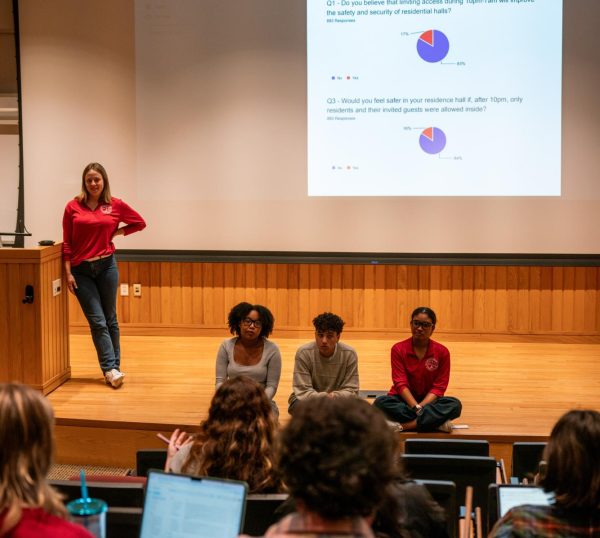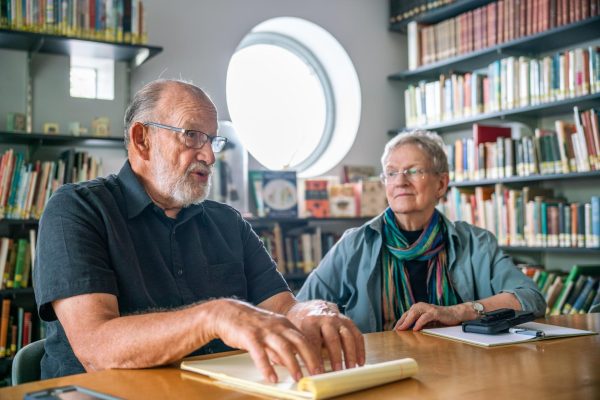Off The Cuff: John Elder and Steve Hammond
Photo by Sydney Allen, News Editor
Steve Hammond and John Elder.
John Elder and Steve Hammond are co-founders of the group Citizens for Safe and Sustainable Energy, an environmental group that has been working to fight the NEXUS pipeline and advocate for Oberlin’s Community Bill of Rights. Hammond is also the Pastor for Oberlin’s Peace Community Church. The group has been fighting the NEXUS pipeline since 2013, pursuing lawsuits, engaging community members, and advocating with City Council.
This interview has been edited for length and clarity.
How did you get involved with Citizens for Safe and Sustainable Energy?
John Elder: I got involved with Citizens for Safe and Sustainable Energy back in 2012, when a student became aware that there was drilling south of Kipton, Ohio, on the western side of town and wanted to know if it was a frack gas well. It turned out not to be but alerted us to the possibility of fracking for natural gas in this area. So we — community people and students — began meeting and eventually we adopted the name [Citizens for Safe and Sustainable Energy]. We started out as anti-fracking, but we needed a more positive name. One of our members had a relationship with [the Community Environmental Legal Defense Fund], which began in Pennsylvania but had had experience with farmers who had been impacted by the disposal of waste products. And this organization learned that if they protested companies for not doing adequate studies before filing for permits, their protests actually provided the companies with the material they needed to file a better application. So they decided that rather than opposing the process of permitting the disposal of dangerous processes or products, they should oppose them, period. We used that as the basis of the Community Bill of Rights.
Steve Hammond: The Bill of Rights and Obligations used language that CELDF had provided us and we adapted to our own situation. That led us to then file an ordinance that passed in the fall of 2013 that included basically a ban on pipelines.
Was the NEXUS pipeline something people were aware of about when the Bill of Rights was passed?
JE: No, when we started we knew nothing about that. In the fall of 2013, NEXUS had an open house. We went to that open house, but that was the first public knowledge that we were aware of this public pipeline proposal, so we had the advantage that our ordinance was not an anti-NEXUS ordinance — it was an anti-pipeline ordinance. In fact, some of us probably thought it was as meaningful as Oberlin’s anti-nuclear weapons ordinance.
SH: Yeah, that whole thing about why the pipeline figures in is that the community Bill of Rights and Obligations not only talks about [not] fracking, but also [not allowing] infrastructure that [allows] fracking, including transportation and that kind of stuff, and that’s how it became related to the pipeline.
JE: One thing that’s important to note, and I’ve been mulling this over, is that NEXUS knew, from the first public announcement that Oberlin was going to have a ban on fracking and on pipelines, so they could from the very beginning have routed their pipeline away from Oberlin. So, we’re having the confrontation now, but it’s not a confrontation that they couldn’t have avoided.
Can you speak to what it’s like for such a national environmental issue to come to Oberlin? What has it been like trying to grapple with this huge corporation?
SH: Well, this all gets put in the bigger context with climate change and all of those types of things, so you realize that you’re gonna be up against big corporations and stuff, but there are other communities that you’re networking within all of this. And I think we didn’t go into this assuming that, OK, we’ve found the key to stopping pipelines from coming through the community anywhere. But I think the very slim hope we grab for is that if we could do enough to grease up the works with court hearings, with regulation hearings — just to slow it down enough — that perhaps the economic issues would overwhelm the desire for them to build the pipeline, because it really doesn’t seem economically feasible when you look at it in lots of ways. So that was really our entryway into this cause obviously, you talk about regulatory measures — I mean industry has a lot of weight in all of this — and so you have to come at it from all the sides that you can.
Oberlin has always been used to fighting big battles. I mean, that’s not anything new here, so to do this wasn’t really entering into anything. It was something going on in this community for a long time, so I don’t think it struck any of us as anything out of the ordinary that all of a sudden we’re involved in this thing that’s so big — I mean, we knew that from the beginning.
Can you speak a little bit more about what CSSE has been doing throughout this whole process — the court hearings and such?
JE: The Federal Regulatory Energy Commission has a process of intervening — being able to file comments — and just as the City of Oberlin has been an intervener in the process, CSSE has been an intervener, which means that in the beginning — when this process opened — we have filed statements in which we have argued and presented our arguments that NEXUS should not be coming through Oberlin.


